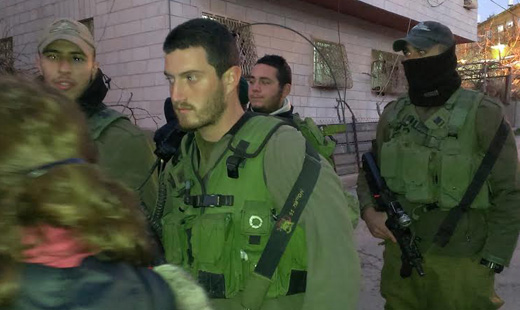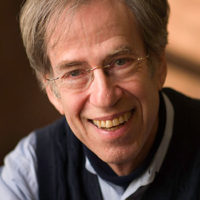
Palestinians living in Hebron, in the West Bank, are not allowed to enter certain parts of their city without permission from the Israeli government. Most stretches of Al-Shuhada Street, which used to be a main thoroughfare, are off bounds altogether. If their homes face the street, Palestinians must enter through the back, which means walking through steep, narrow, torturous alleyways.
Hebron once was thriving. It is mentioned in the Bible as the place where Abraham and his family are buried, making it holy to Jews, Christians and Muslims alike. The Tomb of the Patriarchs and Matriarchs, located at the foot of Al-Shuhada Street, was one of the world’s busiest tourist attractions and many Palestinians had small shops catering to the tourist trade.
No more.
In the mid 1990s, the Israeli army took over the area. Ultra-Orthodox Jewish fanatics moved in. Palestinians were barred from making a living.
Those who could, moved out.
Today, some 700 Jews live in Hebron protected by almost twice as many soldiers. Many would seem not to need such protection because they carry automatic rifles slung across their chest and continually threaten Palestinians they pass.
There are anti-Arab racist signs and graffiti everywhere. It is commonplace for the Jews to curse, spit and throw rocks at their Palestinian neighbors.
If you try to pierce the wall of segregation, you become a target of the Israeli army, no matter what ethnic or religious group you belong to. For example, a group of Jewish nonviolent activists were arrested recently while renovating an abandoned building; hammering and sawing side by side with Palestinians.
The suffering of Hebron’s Palestinians is emblematic of the oppression and discrimination burdening Palestinians living in the area controlled by Israel, which stretches from the Jordan to the sea, regardless of what treaties say on paper.
A short time ago, for example, the Israeli army bulldozed five homes in the South Hebron Hills village of Umm al Kheir. That’s the second time since this past April that Palestinians living in the village were made homeless.
The activists who were arrested are with the Center for Jewish Nonviolence (CJN). Last year, I went with them to help a Palestinian farmer replant fruit trees that had been destroyed by the Israeli army, even though traditional Jewish law specifically prohibits the destruction of such trees even if – especially if – they are growing on the land of an “enemy” you are “besieging,”
We also tried to walk down Al-Shuhada Street to meet with leaders of a Palestinian nonviolent resistance group. A platoon of Israeli soldiers blocked our way, threatening to kill us if we proceeded further. We were able to talk our way out of that situation, but this year the CJN delegation was not so lucky.
Ilana Sumka, CJN founder, describes what happened:
“In partnership with our Palestinian allies, Youth Against Settlements, and our Israeli partners, All That’s Left, we took the first steps to revitalize a Palestinian factory, long-shut down as a result of occupation,” Sumka explains.
“We were invited by the building’s owner, Jawwad Abu Aisha, to help transform the factory into a community movie theater.”
She continues, “It wasn’t long before the Israeli army came and declared the area off-limits as a ‘closed military zone.’ We staged a peaceful sit-in, linked arm to arm.”
Then, as reported in The Forward, a progressive Jewish newspaper, “Soldiers lifted the activists from the ground one by one and directed them up a steep stone path as they chanted a Hebrew song, leaving behind the incomplete cinema. Six activists with Israeli citizenship were detained.”
Sumka adds “Seven of our Palestinian partners were detained as well.”
She says, “With members locked-up, the rest of us defied military orders by walking through the militarized streets of Hebron to the police station, calling for their release.
“Seven hours later, after staging a peaceful sit-in at the police station and thanks to our extraordinary legal team, we were able to secure the release of our nonviolent activists.”
Harassment of people seeking peace happens regularly across Israel and Israeli occupied territory. But peaceful protests are particularly dangerous to do in Hebron because of a cockamamie theological doctrine developed almost a hundred years ago.
Rabbi Abraham Isaac Kook wrote that the Age of the Messiah has arrived, which requires, among things, that Jews settle in Hebron because both patriarchs and matriarchs are buried there, uniting the “aspects of God.” Settling Hebron is not only a duty, but it is doing the people of the world a service by bringing about their redemption, even if this means breaking the law and perpetrating violence upon Palestinians.
That teaching might have motivated Baruch Goldstein, an American-born Jewish lunatic with Israeli military training. He walked into the Tomb of the Patriarchs on February 25, 1994 and shot to death 29 Palestinian Muslims who were kneeling in prayer. He wounded another 125 and stopped firing only when he was killed by survivors of his attack.
You might think that since then the government of Israel would take steps to protect Palestinians in Hebron.
The opposite is true: the government used the attack as a pretext for shutting down Palestinian businesses near the Tomb and shutting out Palestinians from their ancestral homes.
Indeed, when the Israeli platoon stopped us from walking down Al-Shehuda Street last year, they said they were protecting us from rocks that might be thrown by Jewish settlers. Stopping the settlers from throwing the rocks did not seem to be an option.
Ashley Bohrer, a CJN activist says “The ongoing campaigns of destruction and dislocation of Palestinian lives [by the Israeli government] … breaks my heart and boils my blood.
“[I] must say unequivocally that the destruction of Palestinian homes and lives do not represent [my] values or [my] Judaism.”
Photo: Israeli army platoon stops Jewish peace activists from walking down street in Hebron, on the West Bank. | Larry Rubin/PW

MOST POPULAR TODAY


Zionist organizations leading campaign to stop ceasefire resolutions in D.C. area

High Court essentially bans demonstrations, freedom of assembly in Deep South

Afghanistan’s socialist years: The promising future killed off by U.S. imperialism

Communist Karol Cariola elected president of Chile’s legislature



Comments